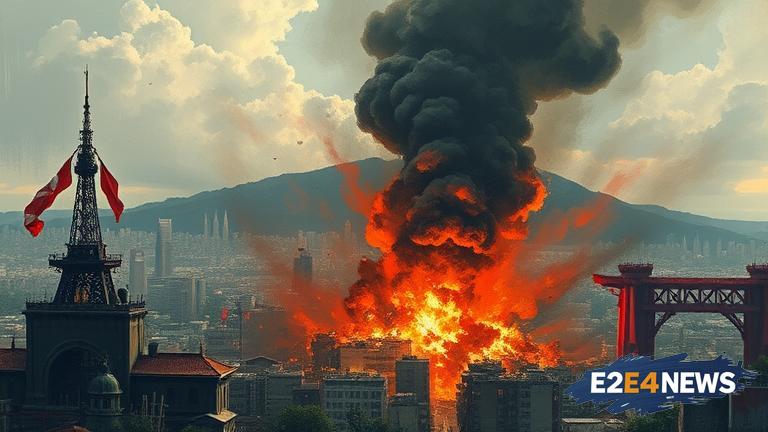The 80th anniversary of the Nagasaki bombing was marked with solemn ceremonies and tributes to the victims of the devastating attack. However, the occasion was also marred by controversy and criticism of Israel’s actions in Palestine. Many have accused Israel of committing genocide against the Palestinian people, and the anniversary of the Nagasaki bombing served as a stark reminder of the ongoing struggles for peace and justice in the region. The Nagasaki bombing, which occurred on August 9, 1945, was a pivotal moment in world history, resulting in the loss of thousands of lives and a profound impact on international relations. In contrast, the Israeli-Palestinian conflict has been ongoing for decades, with both sides suffering heavy losses and facing significant challenges in achieving a lasting peace. Despite numerous attempts at negotiation and diplomacy, the conflict remains unresolved, with many Palestinians facing displacement, poverty, and human rights abuses. The Israeli government has been accused of perpetuating a system of apartheid and committing war crimes against the Palestinian people. The international community has been criticized for its failure to hold Israel accountable for its actions, with many countries providing significant financial and military support to the Israeli government. The United States, in particular, has been accused of enabling Israel’s actions in Palestine, providing billions of dollars in military aid and diplomatic support. The European Union has also been criticized for its failure to take stronger action against Israel, despite its vocal condemnation of Israeli settlement expansion and human rights abuses. The controversy surrounding the Nagasaki 80th anniversary has highlighted the need for greater awareness and action on the Israeli-Palestinian conflict. Many have called for increased pressure on the Israeli government to end its occupation of Palestinian territories and to respect the human rights of the Palestinian people. Others have emphasized the need for a more nuanced and balanced approach to the conflict, recognizing the complexities and challenges faced by both sides. Ultimately, the Nagasaki 80th anniversary serves as a reminder of the devastating consequences of war and the importance of working towards a more just and peaceful world. The occasion has also highlighted the need for greater accountability and transparency in international relations, particularly with regards to the actions of powerful nations like the United States and Israel. As the world reflects on the legacy of the Nagasaki bombing, it is clear that much work remains to be done in achieving a more peaceful and equitable world. The struggle for justice and human rights in Palestine is an ongoing one, and it will require sustained effort and commitment from individuals and governments around the world. The Nagasaki 80th anniversary has served as a powerful reminder of the importance of this struggle, and the need for collective action to bring about a more just and peaceful future.
